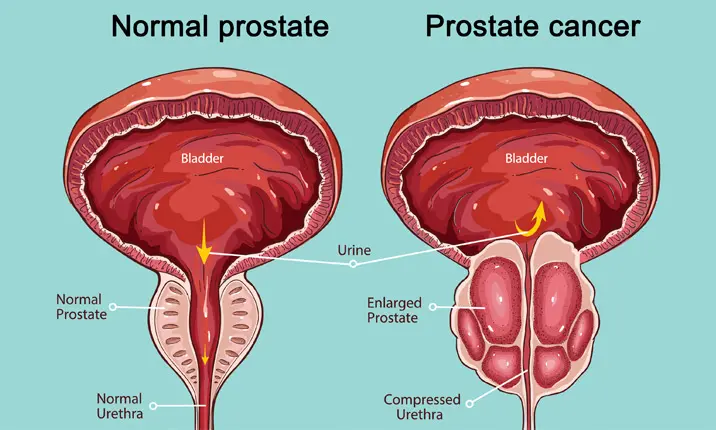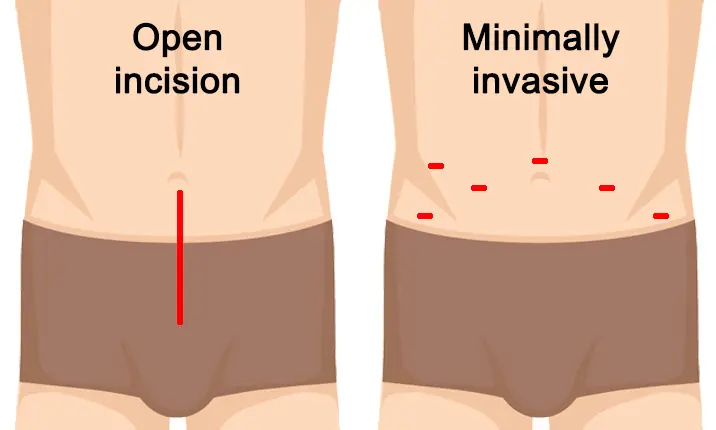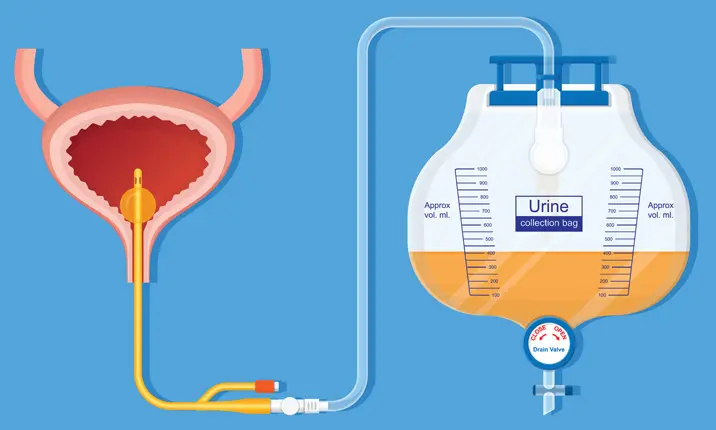What is the prostate?
The prostate is a gland that lies below the bladder, and in front of the rectum. It is part of the male reproductive system that produces the fluid that carries sperm.
Who should have their prostate glands removed?
Your doctor may recommend the removal of your prostate gland upon finding that it is cancerous and has not yet spread outside.
Prostate cancer
Prostate cancer is now the 2nd most common cancer in men worldwide. Prostate cancer is suspected if your blood PSA level is elevated (> 4 ug/L). You may not have any symptoms in the early stages of prostate cancer, but as it progresses, you may experience the following:
- A need to urinate frequently, especially at night
- Difficulty starting urination
- Inability to urinate
- Interrupted, or weak flow of urine (dribbling)
- Painful or burning urination
- Blood in urine or semen
- Persistent pain in the back, hips, ribs, or other bones
Biopsies will confirm if the high PSA level is due to cancer. Upon confirmation of cancer, staging scans are done to assess if the cancer is still confined within the prostate. These scans consist of MRI, bone scan or alternatively, prostate-specific membrane antigen (PSMA) and positron emission tomography with computer-aided tomography (PET-CT).
Treatment for cancer
If you have been diagnosed with localised prostate cancer, the treatment options are radiotherapy or surgery. Radiotherapy requires daily dosing to the pelvis and prostate over a 7-week period. If your doctor recommend going for a surgery, a radical prostatectomy will be able to remove the entire prostate gland and its attached structures such as the vas and seminal vesicles.
What is a radical prostatectomy?
Radical prostatectomy is a surgical procedure to remove the prostate gland and tissues surrounding it. There are 3 methods of removing the prostate, from open incision to standard laparoscopy to robotic-assisted laparoscopic prostatectomy (RP).
RP has become one of the most common minimally invasive surgical options for prostate cancer, and in a RP procedure, your surgeon sits at a remote control console from the operating table, to precisely control the movement of the surgical instruments. The magnified 3D view enables your surgeon to view the procedure in much greater detail than in traditional laparoscopic surgery. With the robotic system, dissection and stitching is more precise, and the delicate nerves that control erection can be more accurately preserved.
What are the benefits of robotic-assisted laparoscopic radical prostatectomy?
The benefits include faster recovery and shorter hospital stay due to lesser pain and blood loss. Robotic-assisted laparoscopic radical prostatectomy uses small incisions and is highly precise. The risk of incontinence is low, and the surgical technique is continuously refined to improve potency. Long-term data also shows lower rates of cancer recurrence compared to radiotherapy.
What can I expect after robotic prostatectomy?
Post-surgery, you will need to be on a catheter for a week to allow for adequate healing of the bladder and urethra.
You can usually return to normal activity within 2 weeks after surgery. For most men, urinary leakage or incontinence usually recovers within 3 months. But for some men, less than 1% of them may take as long as 1 year to regain control of their bladder.
Impotence can take up to a year to recover and depending on whether your urologist was able to spare both nerves during the surgery. The risk of impotence also depends on any pre-existent erectile dysfunction before the surgery.















